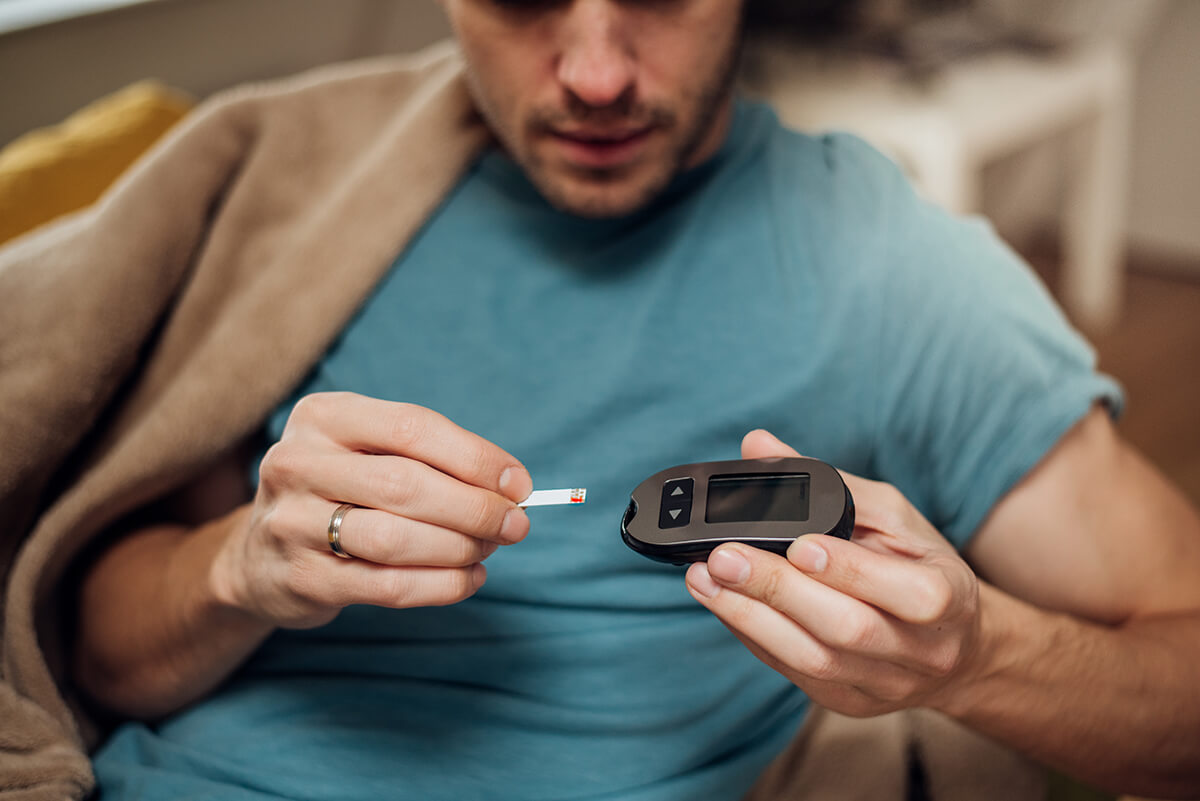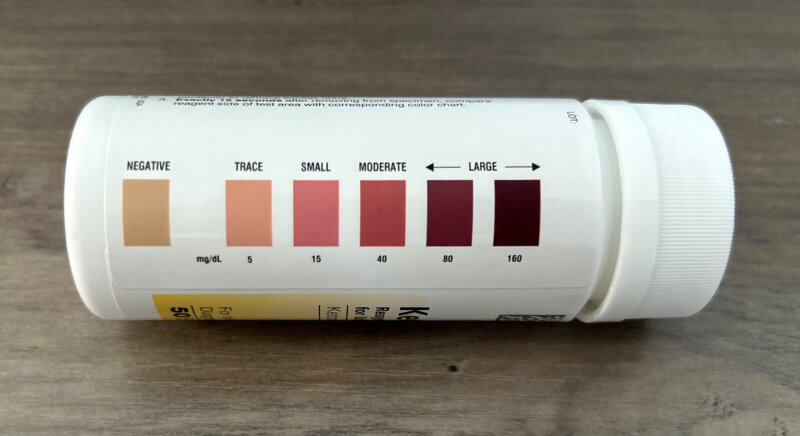
What are ketones?
When your body doesn’t have enough insulin to use the sugar in your blood, it breaks down fat for energy. This produces chemicals called ketones, which make your blood more acidic. Elevated ketone levels often occur when blood sugar readings are high. Very high levels could lead to diabetic ketoacidosis, or DKA, a dangerous condition that demands immediate medical attention.
Ketones and diabetic ketoacidosis (DKA)
Diabetic ketoacidosis is a serious condition in which an insulin-deprived body seeks energy from stored fat. When ketones build up, the result is acidosis (too much acid in the blood). If not treated, this can lead to death. A person in DKA usually has elevated blood glucose levels (>240 mg/dL), but not always.
Signs of diabetic ketoacidosis include:
- Vomiting
- Difficulty breathing
- Confusion
- Extreme sleepiness
- Sweet-smelling or fruity breath
When to check for ketones
Many doctors advise checking for ketones if you are ill, especially if you are vomiting, have stomach pain, or have a fever. It’s also important to monitor ketones when blood glucose is above target; for example, higher than 240 mg/dL for three hours if you use an insulin pump or an automated insulin delivery (AID) system, or higher than 300 mg/dL for three hours if you do multiple daily injections (MDI).
If your blood sugar is above 240 mg/dL, you should test for ketones before exercising. The presence of ketones in someone with T1D shows that there’s not enough insulin in the body to use the sugar. Exercise would only burn more fat, make more ketones, and make hyperglycemia worse, putting you at risk for diabetic ketoacidosis.
How to check for ketones
You can check for ketones in urine with test strips or in blood with a ketone meter. Monitoring blood ketones is preferred over urine ketones because it provides more precise information about your ketone levels. Because urine may have been in the bladder for some time, the results from urine tests may show levels that are either higher or lower than the ketone levels currently circulating in your body.
It is also very important to know that urine test trips degrade over time. If you are using this method, look at expiration dates carefully and discard containers open longer than 6 months.
What ketone levels mean
Ketone levels can indicate if you are at risk of diabetic ketoacidosis. At-home urine test strips will change color to show the level of ketones in urine. They typically report results as negative, trace, small, moderate, or large.

| Urine ketone level | Indication |
|---|---|
| Negative or trace | Considered normal for people with type 1 diabetes. |
| Small | Closely monitor your ketones. If you are experiencing illness, call your diabetes care team and follow the plan you have in place for treating ketones. |
| Moderate | Indicates risk of diabetic ketoacidosis. Call your diabetes care team right away and follow the plan you have in place for treating ketones. |
| Large | Considered a medical emergency. Call your diabetes care team immediately and possibly go to the emergency room. |
Blood ketone meters provide a number to indicate ketone levels. The following ranges are generally used:
| Blood ketone level | Indication |
|---|---|
| Less than 0.6 mmol/L | Considered normal for people with type 1 diabetes. |
| 0.6 to 1.5 mmol/L | Closely monitor your ketones. If you are experiencing illness, call your diabetes care team and follow the plan you have in place for treating ketones. |
| 1.5 to 3.0 mmol/L | Indicates risk of diabetic ketoacidosis. Call your diabetes care team right away and follow the plan you have in place for treating ketones. |
| More than 3.0 mmol/L | Considered a medical emergency. Call your diabetes care team immediately and possibly go to the emergency room. |
Treating elevated ketones
If testing shows you have elevated ketones in urine or blood, follow the plan you and your diabetes care team have in place for treating ketones. Treatment typically includes increasing insulin and fluid intake.
Ketones and illness
Being sick is never fun, but for people with T1D it can pose extra problems and put you at increased risk of DKA.
When a person gets sick, their body is under stress. During times of mental or physical stress, like when sick with the flu or a serious infection, the body makes and releases stress hormones to fight illness. This can affect your blood sugar. On these days, you will need to monitor your blood sugar and ketone levels very closely, usually every 2-4 hours.